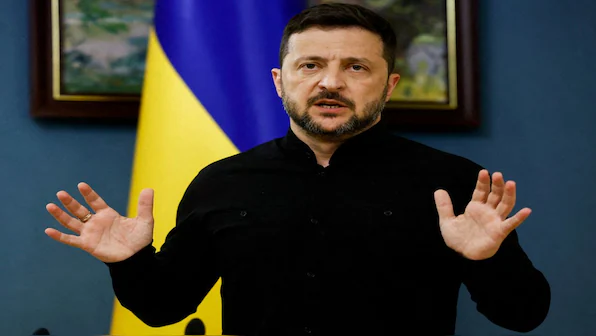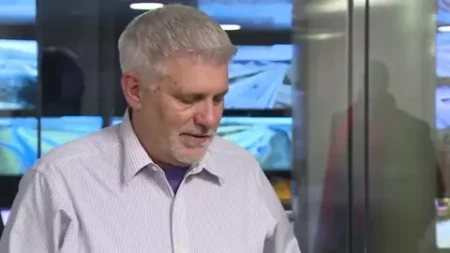Ukrainian President Volodymyr Zelenskyy has firmly rejected any proposal involving a territorial swap with Russia. As hopes rise for a potential ceasefire with high-level talks between the United States and Russia set to take place in Alaska, Zelenskyy remains clear that Ukraine will not concede any land to Moscow. His position is based on Ukraine’s constitution, which protects the country’s territorial integrity.
Beyond the legal argument, Zelenskyy faces a major political challenge to maintain his legitimacy at home, keep international support strong, and avoid being sidelined in a peace process increasingly shaped by others.
The controversy escalated after former US President Donald Trump suggested a ceasefire could involve “some swapping of territories.” Reports say the Trump administration considered a deal where Russia would freeze fighting along the front lines in Kherson and Zaporizhzhia. Russia would keep control over the Donbas region, including Donetsk and Luhansk, while giving up parts of Kherson and Zaporizhzhia under its current control.
Trump described this idea as a practical arrangement benefiting both sides. However, for Kyiv, the proposal challenges the core of Ukraine’s national sovereignty. Zelenskyy rejected it outright, citing the Ukrainian constitution and stating that “Ukrainians will not gift their land to the occupier.”
Legally, the issue is clear. Ukraine’s constitution forbids giving up any part of its territory. Zelenskyy has said there is “nothing to talk about” regarding surrendering Crimea or any other occupied regions. No Ukrainian government could agree to a territorial swap without amending the constitution—a move that is politically explosive and unlikely during wartime. This legal framework creates a firm barrier against any territorial trade-off within Ukraine.
Zelenskyy’s rejection is not only legal but political. Any move to cede land risks alienating Ukrainians who view the fight against Russian aggression as a fight for national survival. Giving up territory could damage Zelenskyy’s standing both at home and internationally. The peace talks in Alaska come amid growing concerns that Ukraine is being sidelined in discussions led by other global powers. Zelenskyy must carefully navigate these talks to protect Ukraine’s interests and control the peace process.
International support has been vital for Ukraine’s defense. Zelenskyy knows maintaining this support depends on showing a united front that refuses to accept territorial concessions. Any sign of weakness could reduce global confidence and the willingness of allies to continue aid. At the same time, Zelenskyy must balance diplomatic relations with both the United States and Russia. The Alaska talks may influence the war’s future, but Ukraine’s leader insists peace cannot come at the cost of losing land.
The Alaska talks mark an important moment in seeking peace in Ukraine. Zelenskyy’s firm stance makes clear that any agreement must respect Ukraine’s sovereignty and constitution. He appears ready to resist pressure to sacrifice territory. His political survival may depend on rejecting unfavorable deals while keeping Ukraine’s allies supportive. Zelenskyy’s message is clear: no peace involving giving away Ukrainian land will be accepted.







